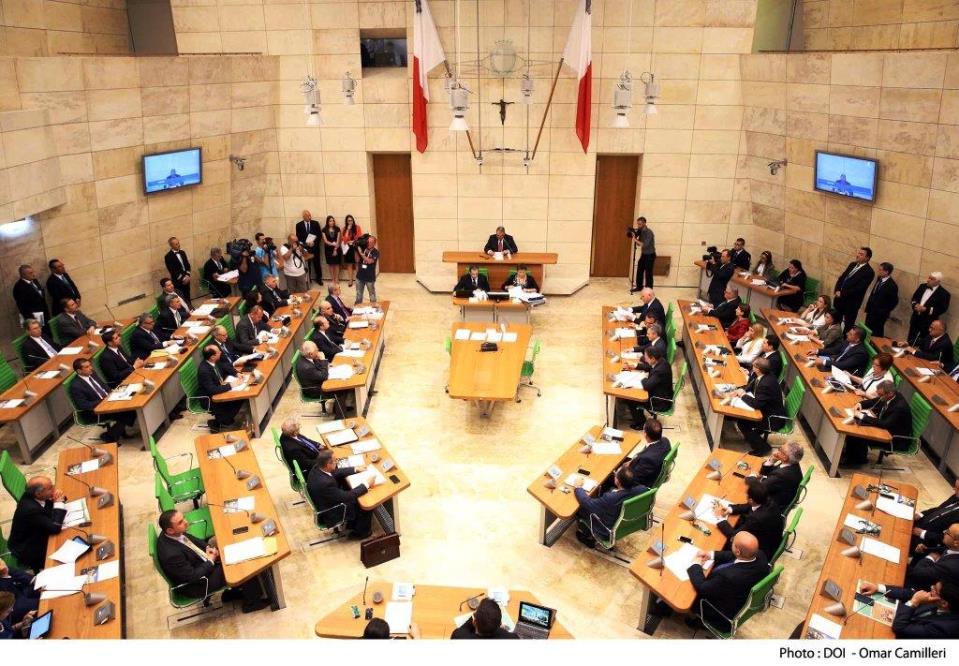While the proposal for future appointments to the posts of Attorney General and Police Commissioner requiring a two-thirds Parliamentary majority looks “flawless” on paper, Judge Giovanni Bonello believes that in practice, it wouldn’t work.
The Malta Independent contacted the former European Court of Human Rights Judge to ask for his opinion on constitutional reform, the rule of law and recent proposals regarding two-thirds majority requirements for the future appointment of police commissioners and attorney generals. The Opposition had pushed for the two-thirds majority requirement, and civil society has since made the call their own.
“On paper, the proposal looks flawless. In practice, I believe it will not work at all. How are government and opposition to agree on the right person for the right job? For a person to be acceptable to both parties, presumably he must have the appearance of political neutrality and impartiality - that means he must be manifestly apolitical,” Judge Bonello said about the two-thirds majority proposal.
“Now my Malta experience has thought me that those persons who claim to be apolitical are the craven without any sense of commitment, the weaklings, the opportunists, the unprincipled who always have an eye on where the wind is blowing. Do we want one of these to be Attorney General or Commissioner of Police. What difference would that make from the ones we have today?”
Turning to Constitutional reform, the former European Court of Human Rights Judge does not believe the Constitution requires any radical change, however has highlighted its main weakness as being a “Constitution written by gentlemen for gentlemen.”

Recently, the need for constitutional reform was highlighted by both major political parties, and has become a source for debate. Even Malta’s President urged political parties to push Constitutional reform forward on the agenda.
Referring to the Constitution, Judge Bonello said that “its main weakness is that it is a Constitution written by gentlemen for gentlemen, and anything meant for gentlemen has the habit of being taken advantage of when it falls into the hands of scoundrels.”
“The institutions devised to check and balance abuse by the government are all in place, but once they are overrun by unctuous yes-men, those institutions, far from scrutinizing and halting abuse, become tools to promote and justify abuse. That is the tragedy of governance in Malta. Most of the institutions meant to control political criminality often become the main accomplices of that political criminality.”
“Were we to change the Constitution, we must keep in mind, not the gentlemen who will apply it, but the blackguards who will abuse it.”
Asked whether he believes, as has been said by various persons, that the rule of law in Malta is in jeopardy or has failed, Judge Bonello said the rule of law is a very vulnerable value, and only survives where there is a total commitment to make it the rule of governance.
“It only survives when there are independent and fearless courts to defend it, when criminals are punished instead of being promoted, where the evildoer is prosecuted, not the one who exposes the evil-doing, where meritocracy is preferred to promoting party stooges. It survives where freedom of expression is not punished with death.”
The recent murder of journalist Daphne Caruana Galizia shook Malta to its core, and has received extensive press coverage locally and abroad, while also seeing prominent international figures, including ones in the European Parliament, paid their respects to the murdered journalist. Judge Bonello was asked what effects he believes the assassination of journalist Daphne Caruana Galizia will have on society in the immediate and long-term.
“I do not know who murdered Daphne Caruana Galizia, so I cannot hazard a guess as to why her assassination was made inevitable. But I know the chilling signal her death was meant to convey. It has reached its target. The price for exposing the criminality of the powerful is not expensive, about that of half a kilogram of explosive. Thank you, we got the message: be silent or die.”